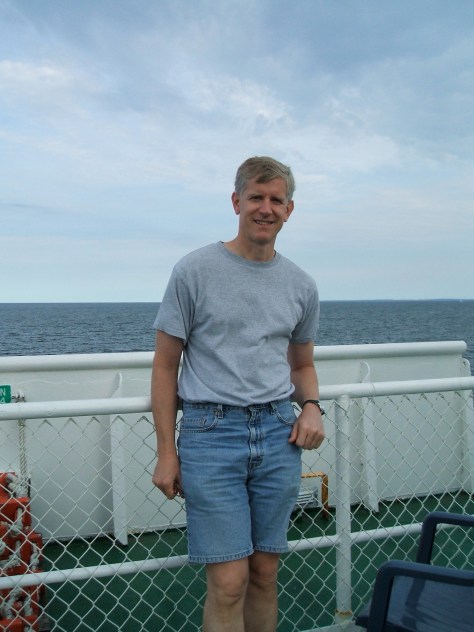Val Holley is author of the books James Dean: The Biography, Mike Connolly and the Manly Art of Hollywood Gossip, and 25th Street Confidential: Drama, Decadence, and Dissipation Along Ogden’s Rowdiest Road.
Can you tell us a little about yourself for those that might not be familiar with you and your work?
I got a bachelor’s degree in journalism, then went to law school–but that was not a match made in heaven. Once, when I was at the library and should have been studying for a Real Property final, instead I was browsing through the Hollywood biographies and found references to James Dean in a Montgomery Clift biography. Immediately I started reading everything about James Dean and determined that there had been no accurate, scholarly biography on him. I decided to step up to the plate and write it myself. I came to feel that writing history was my true calling in life.
Where did you grow up? How did your early environment affect you most in regards to who you are today?
I grew up in Utah as a Mormon. At about the same time I discovered James Dean, I realized that I wasn’t going to love women, and that was incompatible with a Mormon life, so the religion had to go. I am now happily atheist.
When did you first discover James Dean? What do you love about him most?
It took 16 years from the time of my discovery of James Dean (see #1) for my biography of him to be published. I was attracted to who he was on screen: wonderful looks and a nice combination of masculinity and vulnerability. One of my interviewees put it nicely by calling Dean “the brute with the girl’s eyes.”
How would you say he has he affected you most?
James Dean enabled me to realize my calling as biographer and historian. As far as my interests in history and the arts go, he gave me entrée to New York City’s fabulous and fascinating postwar artistic scene, where, as Edmund White recently noted, “the cultural flame [had] passed…from Europe with all the refugees in World War II and burned bright in the ’50s with the Abstract Expressionists and the New York School poets.” Although James Dean was an actor, you saw him immersing himself in a smorgasbord of artistic pursuits at that time.
Did you enjoy with some on the research more than others or did you like working with everyone equally?
At the time, I told friends that writing James Dean was the greatest fun I ever had in my life, although I ended up feeling the same about all my books. The intrigue of stumbling across new information in dusty archival files which no one had touched in decades; making connections between bits of information that were kept on opposite coasts; speaking face-to-face with persons who had known Dean well–and after a hard day’s work, going out on the town in New York or Los Angeles. Some of those I interviewed for James Dean became good friends, such as director James Sheldon, with whom I’m still in touch, or costume designer Miles White. Certain interviewees were such outstanding human beings that making their acquaintance and listening to their perspective changed my life for the better. I’m thinking of writer and critic James T. Maher, singer Jackie Cain, and Adeline Nall.
Who are some of your favorite authors on the subject? Who do you find most credible?
I am the most credible. No Dean biography before mine had footnotes, and most did not even have indexes.
Were there things you learned about him that surprised you?
The purpose of my Dean biography was not to shock or sensationalize but simply to present a true story and accurate chronology, which is more difficult than it sounds. Dean was a human being like all of us, capable of wide ranges of emotion and nobility or depravity.
What is the truth of Jimmy’s Madman Manuscript piece? Did he really open with such a blood curdling scream as is said?
I don’t think it’s possible to know the truth about the Madman screech. Dean’s drama teacher, Adeline Nall, said she would never allow a student to do something that shocking. But she wasn’t in the room–she must have had other duties at the competition as a judge or a monitor–and didn’t see his final performance of the piece, when he could have thrown caution to the wind and inserted something extreme to shake the judges out of their torpor. I found two sources, Vern Sheldon and Carolyn Parks (the winner of the division Dean competed in) but didn’t locate anyone who claimed to have witnessed the scream. It could have been an exaggeration later added by Dean when he was trying to impress interviewers. I covered this incident in greater detail in James Dean: Tribute to a Rebel, a 1991 coffee table book, than I did later in James Dean: The Biography.
Why do you think he was always drawn to things that would give him a chance to test his own limits and develop a healthy sense of competition?
We all want to be somebody. James Dean, like all humans, pursued activities in which he could stand out from the competition. In addition, Dean had a bumper crop of feelings that he apparently felt he had to keep to himself. He had emotional scars from his mother’s early death and his father’s de facto rejection. Risky activities could have been compensation for so many unfulfilled emotional needs.


Reblogged this on Voyeur.
Jim McCarthy, another student who was competing in the national forensics competition that Dean performed in in 1949, wrote an article for Modern Screen magazine after Dean’s death. I doon’t have the article at hand right now, but McCarthy, who saw Dean’s performance, said that by the end of it, Dean’s shirt was in tatters, kids were standing on their seats hollering and applauding.